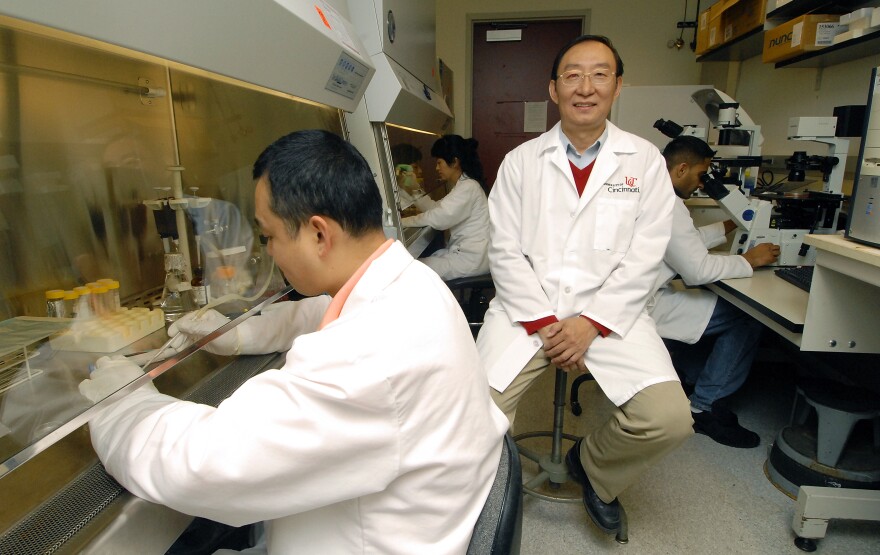As crazy as it may sound to the non-scientist, cells in a patient's jaw may be able to rejuvenate their bad heart.
Yi-Gang Wang, MD, PhD, a professor in the Department of Pathology and Laboratory Medicine and former heart surgeon, explains that when we are growing in the womb our facial muscle cells develop near the heart. They eventually migrate to the head and are similar to heart cells.
In small animals Wang has taken cells from the animal's facial muscle to the lab, enhanced them and turned them into beating heart cells. Wang says this has translated into regeneration of the heart muscle. He's ramping up research in large animal models. Human trials could begin in five years.
Wang says traditional treatments, including medicine and surgery, cannot cure or recover heart tissue and they come with some dangers, such as reduced oxygen, complications from bypass surgery, the ability of a donor heart and the risk of rejection.
After facial cells are harvested scientists would need about two weeks in a lab before the modified cells would be ready to attach to the heart.
The modified cells would be administered via injection or a patch. Wang says humans could then see heart improvement in about a month.
This story originally aired February 6, 2017



